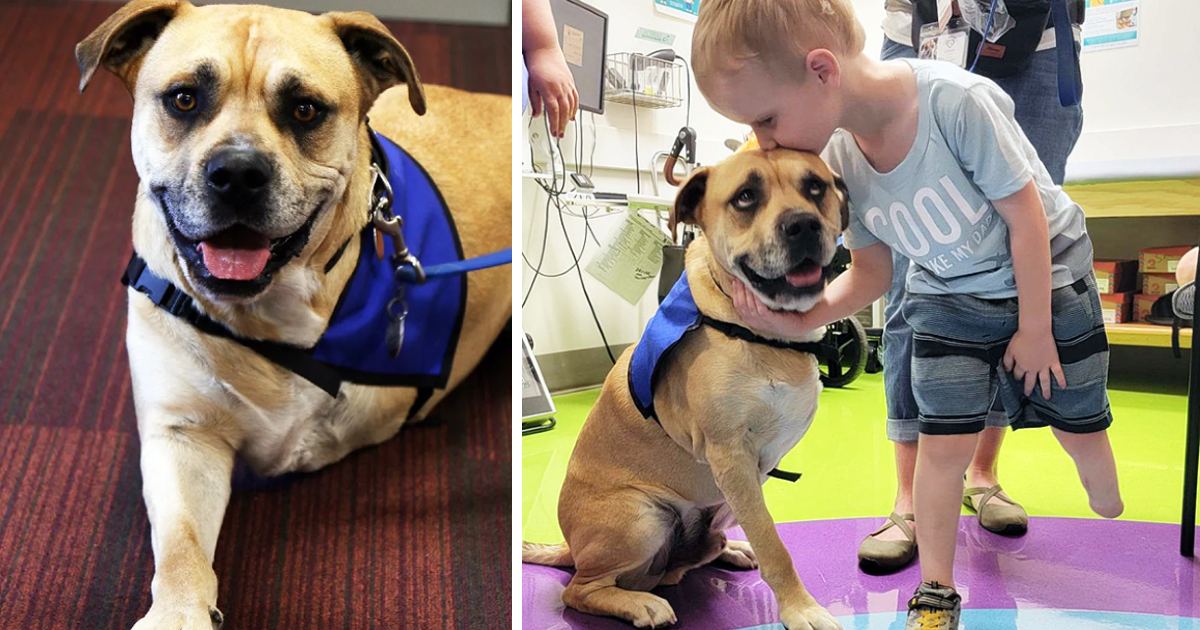A heartwarming story about a rescued dog, thanks to whom even children who are a little different from their peers can smile again.
By soothing people, Chance is making the most of his second chance at life.
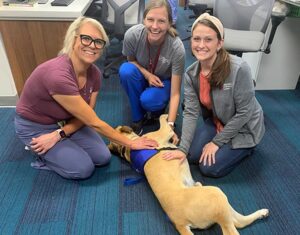
The rescue dog is the first to work as a therapy dog at Shriners Children’s Hospital Lexington. Chance was found starving to death with a bullet lodged in his shoulder before going through training and gaining a position at the Kentucky hospital.
Animal lovers from Camp Jean Rescue supplied much-needed medical treatment and compassion to Chance, but their efforts were insufficient to save the dog’s front leg. Veterinarians removed Chance’s left front leg, collarbone, and shoulder to treat the dog’s bullet wound.
Chance quickly adjusted to losing a limb and immediately charmed an adopter.
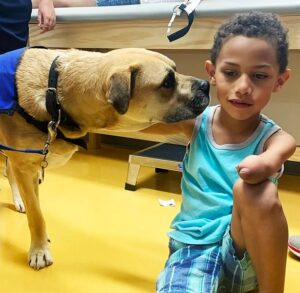
“I rescued Chance six weeks after he had his leg amputated. I chose to seek pet therapy certification after seeing how kind, clever, and obedient he was. “As a former Shriners nurse, I knew I wanted to focus on visiting patients with limb deficiencies,” Chance’s mom and handler, Andrea White, tells PEOPLE.
Chance and White went through Love on a Leash therapy pet training, and soon the canine was pawing through the halls of Shriners Children’s Lexington as a certified therapy dog, visiting kids with limb disabilities like him.
“The majority of our visits take place in the clinic exam rooms, and the kids just light up when we walk in.” Many of them, including parents and siblings, get down on the floor to be closer to him. “Everyone is very curious about how he lost his leg,” White says of a typical Chance visit.
Because of the dog’s “eager to please” disposition, he is frequently excited to get to work and assist children living with a limb difference.
“He knows he’s ‘going to work’ and gets excited as we pull into the hospital parking lot,” White says.
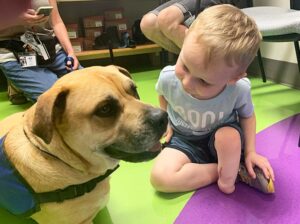
Every family Chance visits is delighted to spend time with the dog.
“Meeting Chance was such an unexpectedly profound experience for our family,” says Emily Yost, whose 4-year-old son, Arlo, is a Shriner Children’s Lexington prosthetics patient. “With Chance, I could tell he had a different level of relatability and compassion.” After the visit, he had a lot of concerns about what happened to Chance and what we might do to aid him further.”
“We explained to Arlo that Chance, like him, is and will be OK, and that he can do anything he puts his puppy mind to — just like Arlo does every day,” she adds.
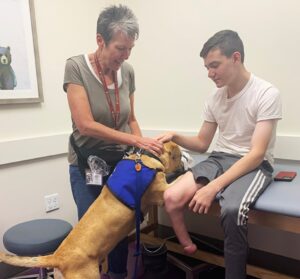
The great energy that Chance brings with him is felt by the hospital staff as well.
“Seeing Chance alleviates a lot of the anxiety and stress associated with a long visit to our prosthetics clinic,” says Beth English, a licenced therapeutic recreational therapist at the hospital. “Because many prosthetics visits can last more than an hour, seeing Chance gives patients and families something to look forward to.” “The smiles on the faces of the patients and their families say it all.”
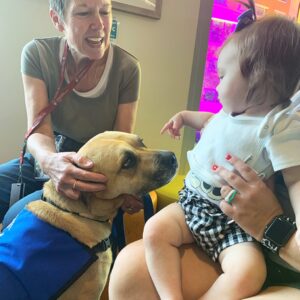
Chance enjoys spending time with his buddies while he is not working. At home, he is either clinging to White or playing with his rescue dog sibling, Sadie.
White wishes Chance’s work inspires animal lovers to support therapy dog programmes, which may be found not only in hospitals but also in nursing homes, schools, airports, and libraries.
